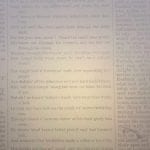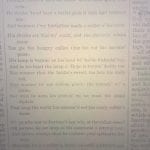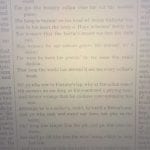
VI: “The Collier’s Wean”
This poem was published in Glasgow’s The Commonwealth newspaper on 5th September 1857, signed “Davie, Darngaber, Aug, 1857”. “Davie” was the pseudonym of miner David Wingate. Born in 1828, he had worked as a miner in the south of Glasgow since he was nine years old. In the 1850s, he began to publish poems in the local Glasgow and Lanarkshire press. But unlike the majority of local Victorian poets, he succeeded in bringing his poems to the attention of Blackwood’s Edinburgh Magazine, where they were reprinted and positively reviewed. It was unusual for such a high-status periodical to champion a working-class writer, and not surprisingly it brought significant attention to Wingate, who was lauded as a rare instance of a poet emerging from the mining industry and from heavily industrialized Lanarkshire. Wingate made the most of his opportunities, using the profits from his poems to retrain as a manager and continuing to publish poems and stories throughout his life.
Wingate’s own life story meant that readers could have viewed “The Collier’s Wean” as autobiographical. Its opening reference to the popular song “Castles in the Air” (by Edinburgh poet James Ballantine) is bitterly ironic, since Ballantine’s poem is about a contented child gazing into a warm fire and daydreaming, luxuries that the collier child cannot imagine.
This link will take you to the Dictionary of the Scots Language if some of the words in the following poem are unfamiliar.
“The Collier’s Wean”
He’s up at early mornin’, howe’er the win’ may blaw,
Lang before the sun comes roun’, tae chase the stars awa’;
And ’mang a thousan’ dangers, unken’d in sweet daylicht,
He’ll toil until the stars again keek through the chilly nicht.
See the poor wee callan’! ’Neath the cauld clear moon!
His knees out through his trousers, and his taes out through his shoon,
Wading through the freezin’ snaw, thinking owre again
How happy every wean maun be that’s no a collier’s wean!
**
O! ye wha row in Fortune’s lap, why at the callan sneer?
Oft sorrow’s no sae deep as his command a pitying tear:
And lichter wrangs than he endures your sympathy hae won,
Although he is a collier’s, mind, he’s still a Briton’s son.
And ye wha mak and mend our laws, tak pity on the bairn,
Oh! keep him langer frae the pit, and gie him time tae learn;
Sae shall we lift him frae the mire ’mang which he lang has lain,
And win a blessin’ frae the heart o’ every collier’s wean.
- The Collier’s Wean, pg. 1
- The Collier’s Wean, pg. 2
- The Collier’s Wean, pg. 3




Guy Wingate July 3, 2020 - 10:08 pm
This would appear to be an earlier publication of what was later published as “The Collier’s Ragged Wean” by David Wingate.
If you have any other examples of David’s poems from the Commonwealth Newspaper then I would be very grateful if you could let me know. I am a relation of his researching the family history.
Iain Allan March 17, 2021 - 9:55 am
Hello Guy
In 1791 my 6 times great grandparents arrived at Wilson Town Colliery and Iron Works in Lanarkshire near Hamilton. They had travelled from Germany as Daniel Bagel had been identified by the Wilson Bros as a man who could operate a Boultonand Paul engine at their new colliery. There second son was born there and his middle name is recorded as Wingate which I have often thought as very odd. I know David Wingate was born 1828 but wonder if his father came from or lived around Wilson Town Colliery near Lanark and that perhaps there may have been some connection or bond of friendship between my 6 times great grandfather Daniel Bagel and David Wingates father?